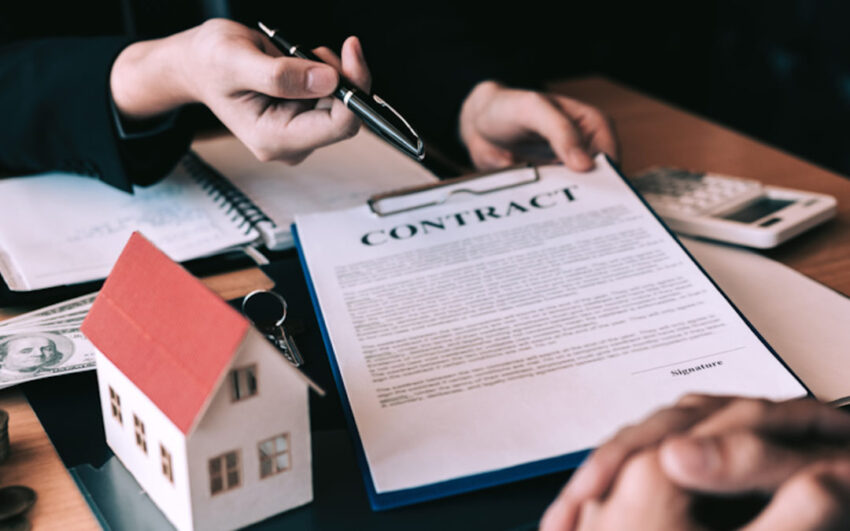Be careful out there. A lot of real estate deals come with hidden closing costs you should always avoid.
If you pay these hidden costs, then you are automatically getting suckered and losing money before you even get your foot out of the door.
Thankfully, we have a simple, concise guide on what you should watch out for when buying a property. We list out advantages, red flags, and other useful information that you should know as a real estate investor. Stop paying outrageous closing costs and learn how to protect yourself.
How Closing Costs Are Calculated
Before you can know if you’re paying too much in closing costs, you have to know how much a normal rate is.
According to Quicken Loans, the normal rate you should expect to pay is somewhere in the 3 to 6 percent range. However, you should also expect to be on the higher end of the spectrum if you live in expensive cities with expensive housing like San Fransico or New York City.
An Example Closing Cost
Let’s say you buy a home for $500,000. If you are asked to cover closing costs by the seller, you might find yourself paying around 3 to 6 percent of the total cost, which is average.
If closing costs are at 5%, you can expect to pay around $25,000 (5% of $500,000).
What’s Included
A closing cost is simply the price you pay for services like insurance and mortgage costs that your lender will cover in the event of a property purchase. These can be expensive.
Such services include but are not limited to loan application fees, escrow fees, mortgage broker fees, prepaid interest, and others.
Some Hidden Closing Costs You Should Always Avoid
Buying a home is expensive enough without getting ripped off as well. But it happens. And it happens quite frequently.
The most common scam usually involves the real estate agent, inspector, or mortgage lender fraudulently getting you to pay more money than you should.
Real Estate Agent
Your real estate agent makes a commission off each sale. This literally gives them a financial incentive to sell you a house no matter whether it’s a good decision for you or not.
Beware of any referrals they give you. In fact, it’s wise to just bring in your own outside consultations for issues like inspection, mortgages, escrow, etc.
More often than not, many real estate agents have private referral agreements with brokers they know. They make a profit on both sides of a deal this way. You don’t want them to have this much control over you.
According to General Home Inspection, a common scam among real estate agents involves a home inspector. If they provide you with one, the inspector is usually in their back pocket.
Don’t allow your agent to have a closer relationship with your inspector than you do. That’s why you want all outside consultation to be handled through you.
Home Inspection Fraud
Home inspections are normally a requirement by lenders to get financing. Many inspectors use this requirement to their advantage by charging you more than fair value.
A common trick pulled by inspectors is to offer only “virtual inspections.” They may try to inspect your home online only, without visiting your property in person while still demanding full payment.
Don’t let them get away with it. If they miss anything, it could cost you thousands down the road.
Also, make sure your inspector gives you a guarantee in writing that they haven’t missed anything. If they won’t give you one, move on until you find one who will.
Loan Flipping
Mortgage lenders control your money and have the most leverage over you. This makes them the most dangerous.
Watch out for any mortgage lender who asks you to flip your mortgage plan multiple times on a new house. This is called loan flipping.
These types of scammers will try to pressure you into changing lending plans after you’ve already agreed to one. Their goal is to get you to keep switching plans so they charge you outrageous fees for each new plan.
Loan flipping is fraudulent because it in no way helps the buyer. It’s just a scheme for the lender to charge you fees hoping you won’t notice it.
This type of predatory behavior is especially damaging to elderly people, who typically use equity for financing. Equity in financing makes it easier for a mortgage lender to charge fees without getting caught. People are usually more likely to pay attention when cash is involved.
What Else Is Costing You?
These are just a few of the hidden closing costs you should always avoid when buying a home.
The best defense against being overcharged is to pay attention. Analyze the numbers and reach your own conclusions.
If you need help, you can always use our Rental Property Calculator tool. Using our tool, you can analyze how much you’re really spending every month.

